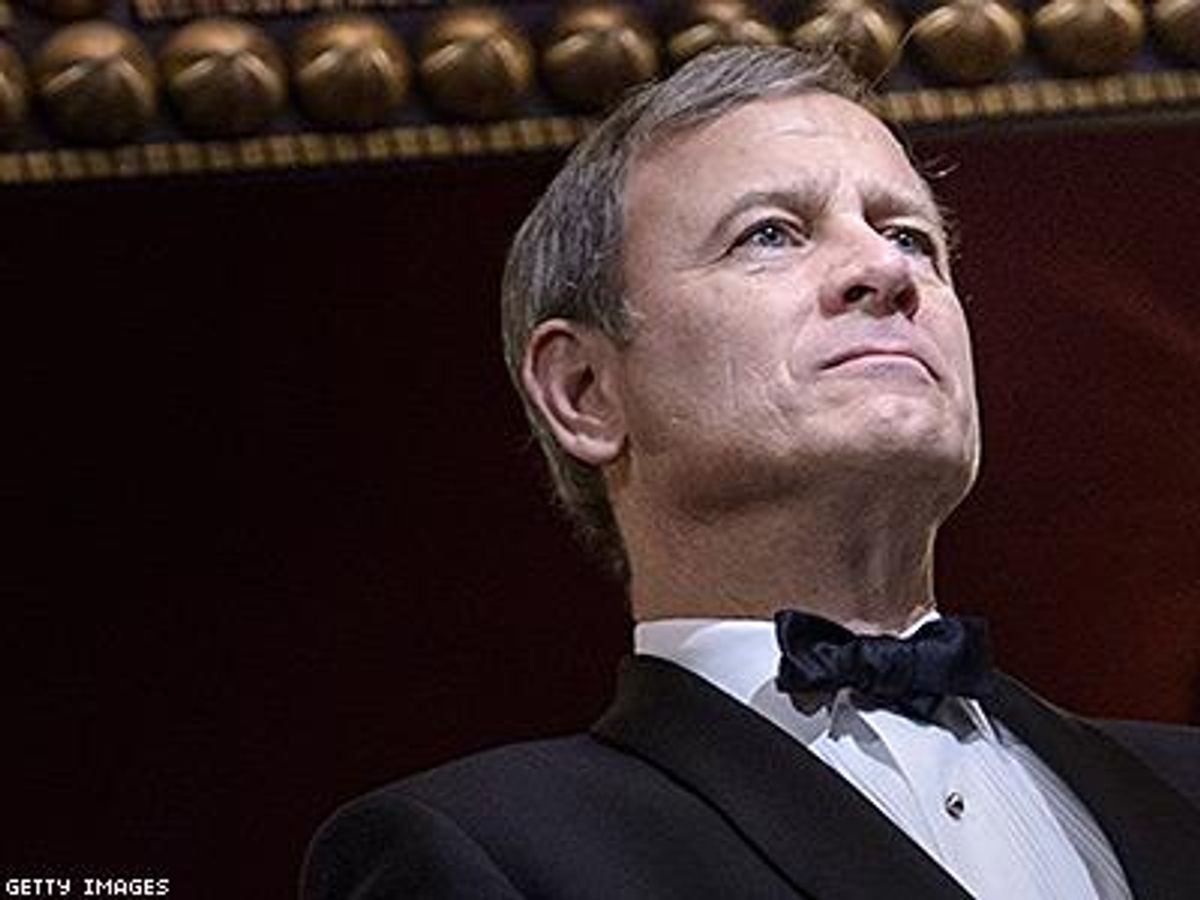Most eyes are looking to Justice Anthony Kennedy as the key swing vote as the U.S. Supreme Court considers marriage equality today, but some observers think another member of the court may come over to the equality side: conservative Chief Justice John Roberts.
"There are a number of institutional reasons Chief Justice Roberts might, and should, cast a vote for the freedom to marry," writes Joseph Landau, an associate professor at Fordham Law School in New York, in a New York Times op-ed published Monday.
"A Supreme Court ruling authorizing the states to restrict marriage to heterosexual couples would lead to enormous confusion," Landau writes, noting that states where marriage equality came through federal court rulings "could revert to their earlier state of affairs."
"Then there is the broader issue of social consensus," he adds. "The continuing nationwide division over same-sex marriage, notwithstanding the recent shift in public opinion, might give Chief Justice Roberts pause. He may find it unwise to put the Supreme Court's blessing on a legal rule that would create so much uncertainty for so many people in such a bedrock institution."
Landau also notes the many pro-equality rulings from federal district and appeals courts since the 2013 Supreme Court ruling striking down a key section of the Defense of Marriage Act. "Does Chief Justice Roberts truly believe that so many of his lower-court colleagues have gotten the law wrong?" Landau writes. "Possibly -- but the growing consensus on the ground could nudge him to side with a vast majority of his colleagues on the federal bench."
These considerations, the professor notes, are over and above speculation by other commentators that Roberts was among the justices who declined to review pro-equality rulings last fall -- those votes are secret -- or that his vote to uphold DOMA, focusing on procedural issues more than the merits of the law, indicated he might ultimately support the legal concept of marriage equality.
If one looks only at the cases being heard today, Landau concludes, "the posture of these cases, their significance in the broader history of the Supreme Court, and their administrative and practical implications are likely to give the chief justice pause before voting against the right to marry. If Chief Justice Roberts focuses on these questions, his vote should be with the plaintiffs this time around."












































































